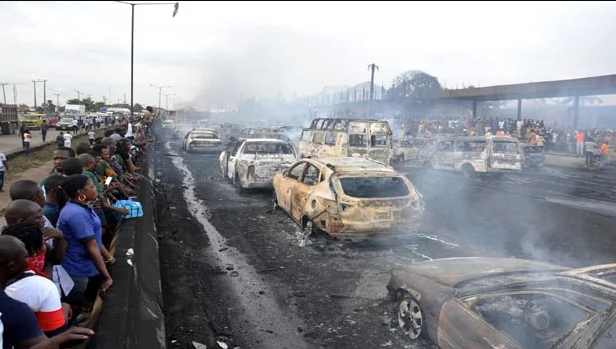
- Professor Patrick Lumumba said African leaders are force to look into the depths of their own self sufficiency and provide for themselves.
- The African continent’s debt undermines their already limited resources needed to fight the coronavirus.
- Corruption also continues to undermine government efforts in responding to the pandemic.
The Covid-19 pandemic should force African political and corporate leaders to look into the depths of their own self sufficiency and provide for themselves what they looked to the rest of the world to provide, hopes Professor Patrick Lumumba of Kenya, who delivered a virtual lecture late last week in partnership with the Black Management Forum.
The African continent faced unique challenges during the Covid-19 pandemic with the debt undermining their already limited resources needed to fight the virus. Africa’s long colonial history continues to inform its economic trajectory and trade patters to this day.
Corruption also continues to undermine government efforts in responding to the pandemic. President Cyril Ramaphosa had to condemn corruption that emerged in tenders for Covid-19 food parcels, Unemployment Insurance Fund Applications and other state assistance programmes.
During his lecture, themed "the unfinished business of economic empowerment", Lumumba said the African paradox of wealth in resources juxtaposed with limited geopolitical power was an open secret. Lumumba holds a PhD in the laws of the sea from the University of Ghent in Belgium and is director of the School of Laws in Kenya.
"We are in a continent whose potential is limitless and monumental. Yes, there is a sense in which all critical indices, we are lagging behind all other continents. Economists will always tell you that Africa is great in prospect, but not in fact," said Lumumba.
In June Ramaphosa, told world leaders in a virtual meeting that African states and other developing economies would need their debt obligations suspended if they hoped to fight the impact of the coronavirus pandemic and revive their economies.
In April, chief economist for the Africa region at the World Bank, Albert Zeufack, said a "debt freeze" for African economies could free up $44 billion to respond to Covid-19.
Lumumba said, in South Africa, the visible signs of apartheid were symbolically consigned to the museums of history but the fundamentals of apartheid remained alive and well "...in a subterranean and in a subtle way".
"What confronts us today is to use the past to inform the present so that we can address the future. It is not all doom and gloom, but there are things that we ought to do differently. We must see the future through the prism of our ability to achieve things," he said.
For too long, African nations relied on solutions and systems that were not home grown, evidenced in the finding that even though South Africa is the twelfth largest exporter of wine in the world, the wine sector in the Italian economy is larger than the combined economies of East Africa.
When Minister of Trade, Industry and Competition, Ebrahim Patel tabled his budget vote in Parliament on Friday morning, he said South Africa had only started producing ventilators locally in the middle of the pandemic. Patel said this shift needed to be replicated in other industries in order for South Africa to industrialise and poise itself for recovery after the pandemic.
"There is a terrible beauty to Covid-19. It is terrible that it has confined us, but there is beauty in that it has allowed us to introspect and realise that there are many things that we can do. As we engage in this conversation today, we must ask ourselves what we can do in various sectors," he said.
BMF President Andile Nomlala said South African and African black professionals must not be "spectators in a game where we are qualified and compelled to play", stressing that they had a role to play in uplifting disadvantaged communities they came from.
"We have the responsibility and expectation to address the ravaging effects of the coronavirus, particularly in the impoverished people of our continent. We want to probe and engage luminaries of a high calibre to figure out how we deliver ourselves towards better economic fortunes in the future," said Nomlala.
Nomlala said South Africa's poverty lines were exposed and glaring, while people close to the political elite were pillaging resources. Nomlala said this was inexcusable, as before the pandemic, the South African economy was already limping.
"Our economy had not been growing and we had been in technical recession. The professionals in our country have acquired skills and knowledge to be party to the solutions of our continent’s problems," Nomlala said.
Political analyst Somadoda Fikeni said the South African black middle class needed the mentality and conscientisation and attitude to uplift the communities they come from as it has become apparent that some black professionals identify with no interest but their own.
"There is always a role for the black professionals. Black professionals are drawn from the black majority which constitute in excess of ninety percent. They are organically linked to the majority so they would know the needs.
"If they are patriotic in their inertia, they would frown upon corruption any they would commit to put their shoulder to the wheel. They must have a national patriotic perspective as well as a Pan Africanist patriotic perspective as well as a need to balance the two," said Fikeni.
Fikeni cited Frantz Fanon's book The Wretched of the Earth, said the new bourgeoise, including black professionals, political class and corporate elite are liable to serve their own interests.